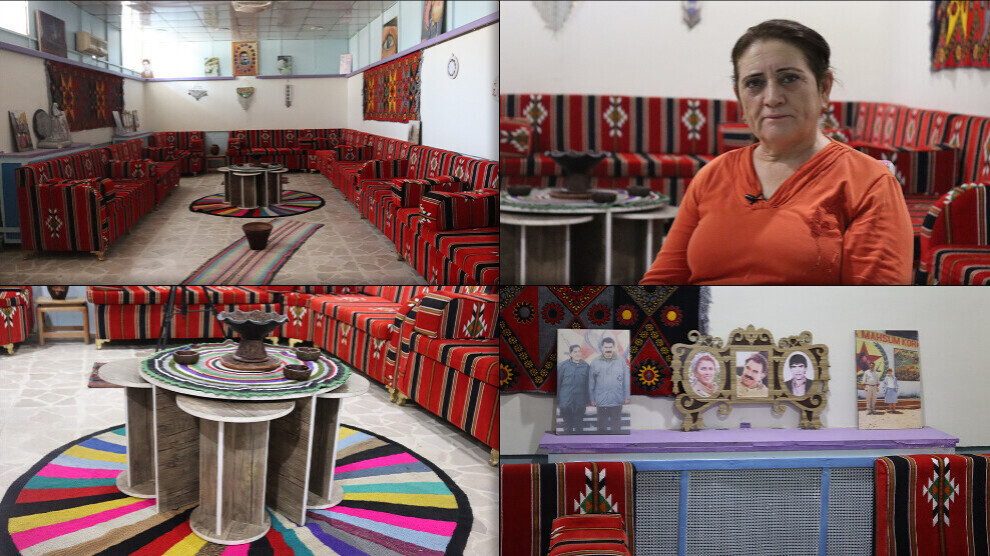Kezwan Center: Preserving women’s culture in Hasakah
Amid social and cultural shifts in northeast Syria, the Kezwan Women’s Cultural Center has emerged as a beacon of diversity and creativity, celebrating cultural identity while shielding it from marginalization and erasure.

ZEYNEB ÎSA
Hasakah — Yusra Elias, director of the Kezwan Women’s Cultural Center, said the facility draws wide participation from all local communities. She highlighted that the Democratic Nation project enables each group to preserve its heritage while promoting pluralism and coexistence.
Affiliated with the Hîlala Zêrîn organization in Hasakeh, the center provides a platform for women to showcase talents in cultural, artistic, and musical programs. It offers a free space for expression, preserves local traditions, empowers women, and strengthens their role in society and cultural life.
Elias stressed the importance of women protecting their culture, calling it the “essence of identity and existence.” She said: “We must continually safeguard our culture. Every person is defined by their heritage. We Kurds are known for our rich history, and protecting it enables the building of a free society. Culture and society are intertwined—neglecting one erodes the other.”
The center welcomes all community groups, creating an open space for cultural diversity. Its name, “Kezwan,” comes from the well-known Kezwan Mountain in Hasakah. Established in 2021, the Hîlala Zêrîn opened the Kezwan Center three months ago as a unifying platform for Kurds, Arabs, Syriacs, Armenians, Yazidis, Alawites, and Druze, showcasing the pluralism promoted by the Democratic Nation project.
Reviving local culture
Elias said the center’s primary mission is to protect all cultural traditions from decay and erasure. “After the Rojava revolution, we renewed our commitment to preserving culture—not only Kurdish culture but that of all communities,” she said, adding that cultural promotion has grown from home gatherings to organized community participation, with mothers and children increasingly engaging in folk music and dance.
Empowering women, embracing diversity
Elias highlighted the center’s artistic groups, attracting participants from Hasakah and beyond. Weekly training includes folk singing for mothers, along with dance and theater programs. All groups actively participate in public celebrations, including International Women’s Day (March 8), Nowruz (March 21), Leader Abdullah Öcalan’s Birthday (April 4), Rojava Revolution Day (July 19), and Commemoration of the First PKK Attack (August 15), with children also taking part in festivals such as the ‘Martyr Berçem’ event.
Looking ahead, Kezwan plans new initiatives, including musical evenings to revive folk traditions and engage audiences. “Previously, we organized small concerts, and now we are planning larger events centered on folk music,” Elias said, adding that a festival is also in preparation.
Concluding her remarks, she addressed women worldwide: “I urge all women to nurture their culture. Protecting it is essential to building a free society.”
